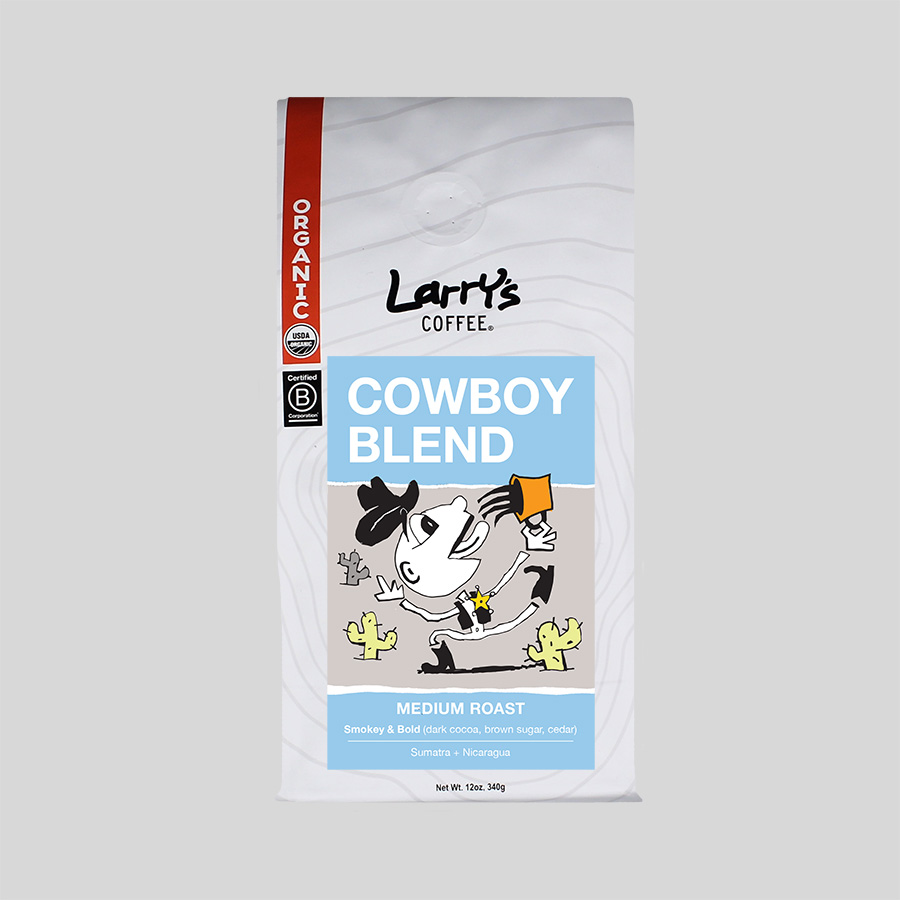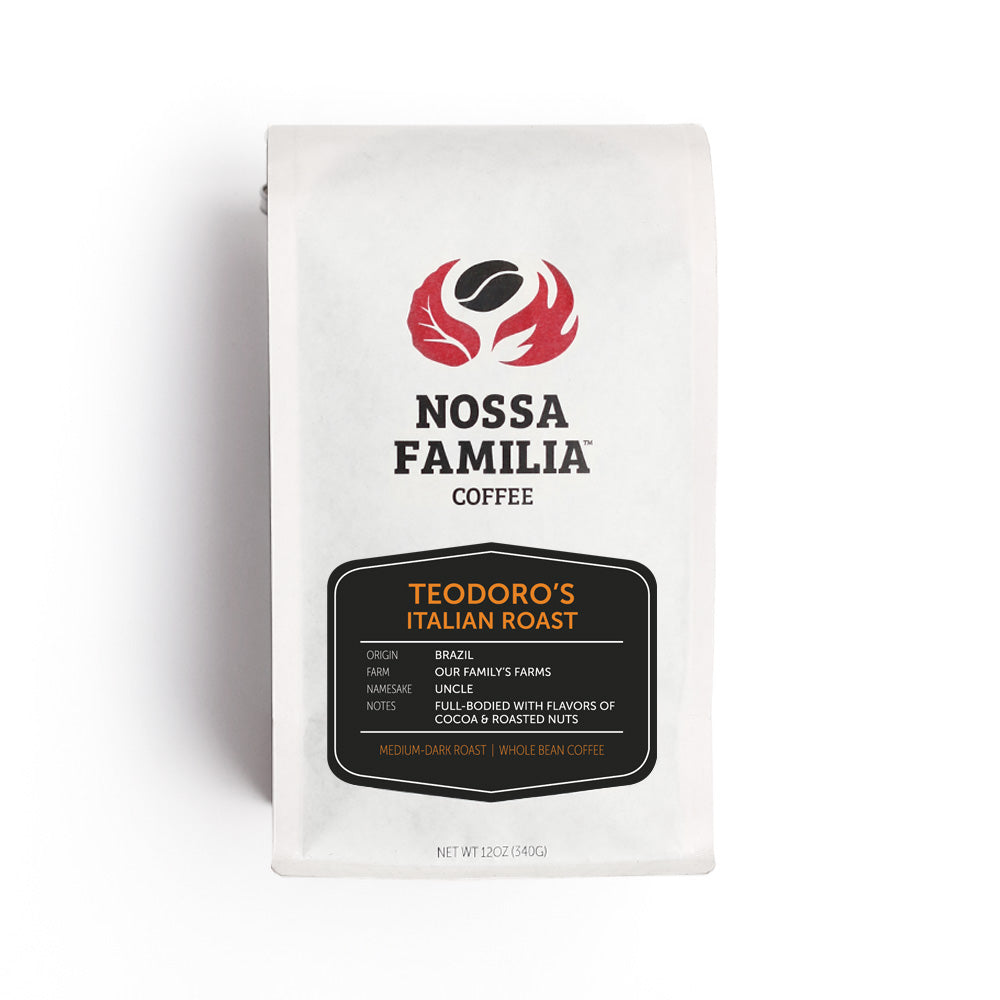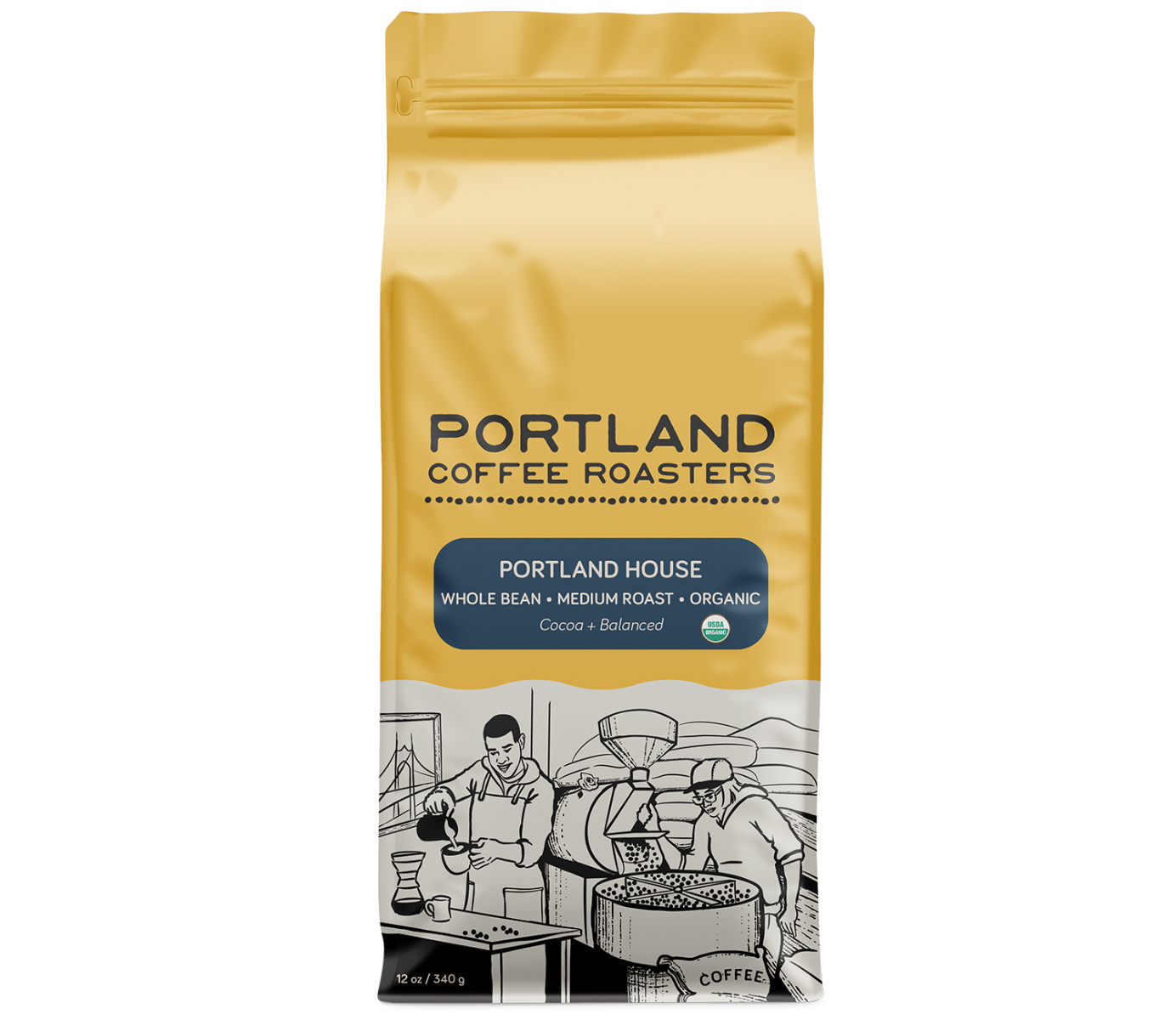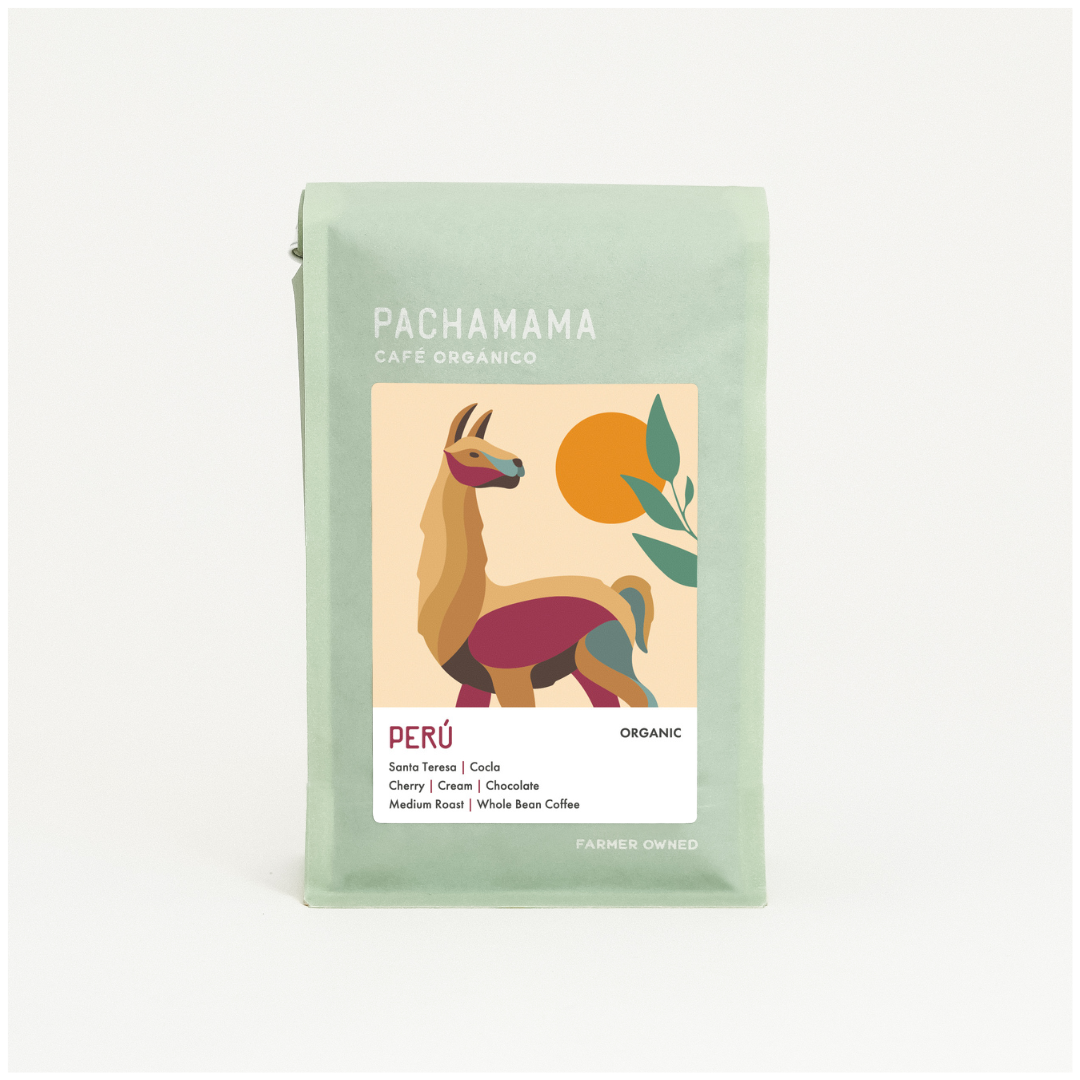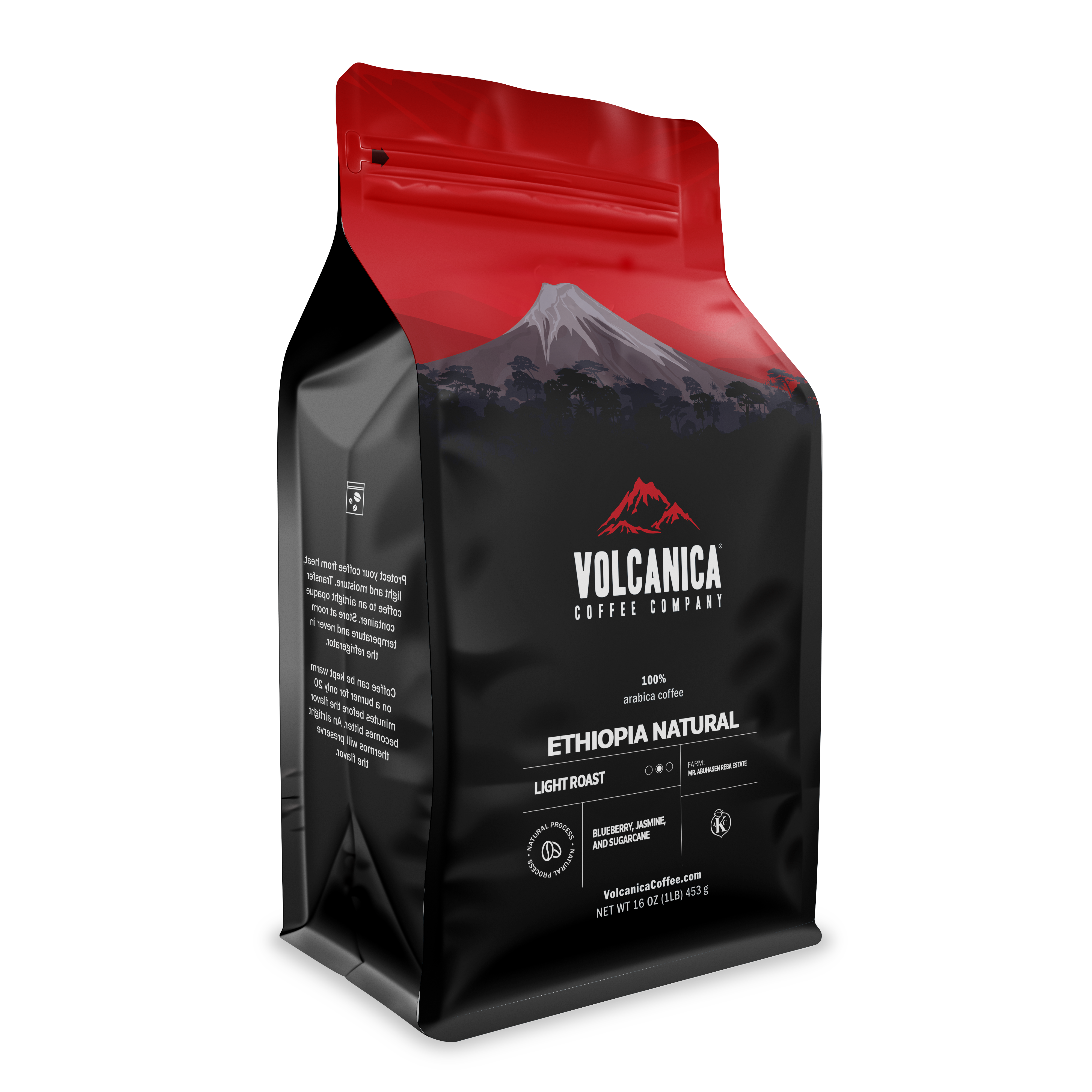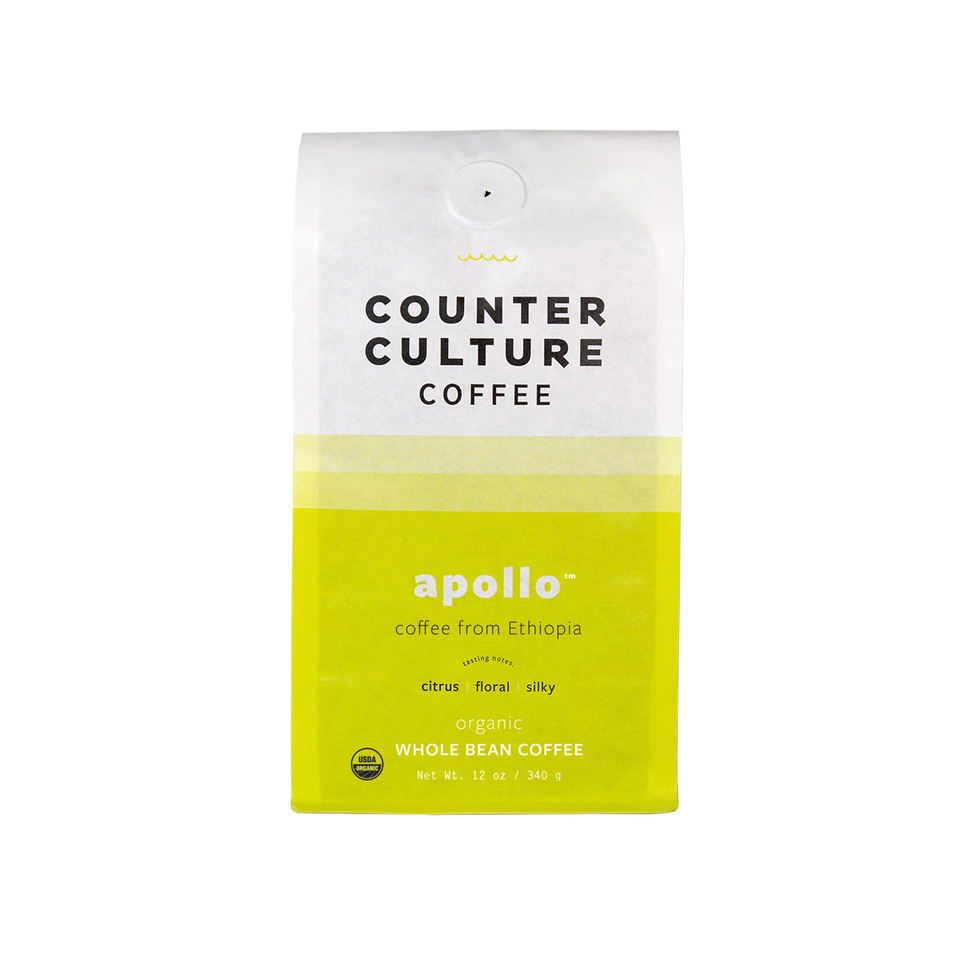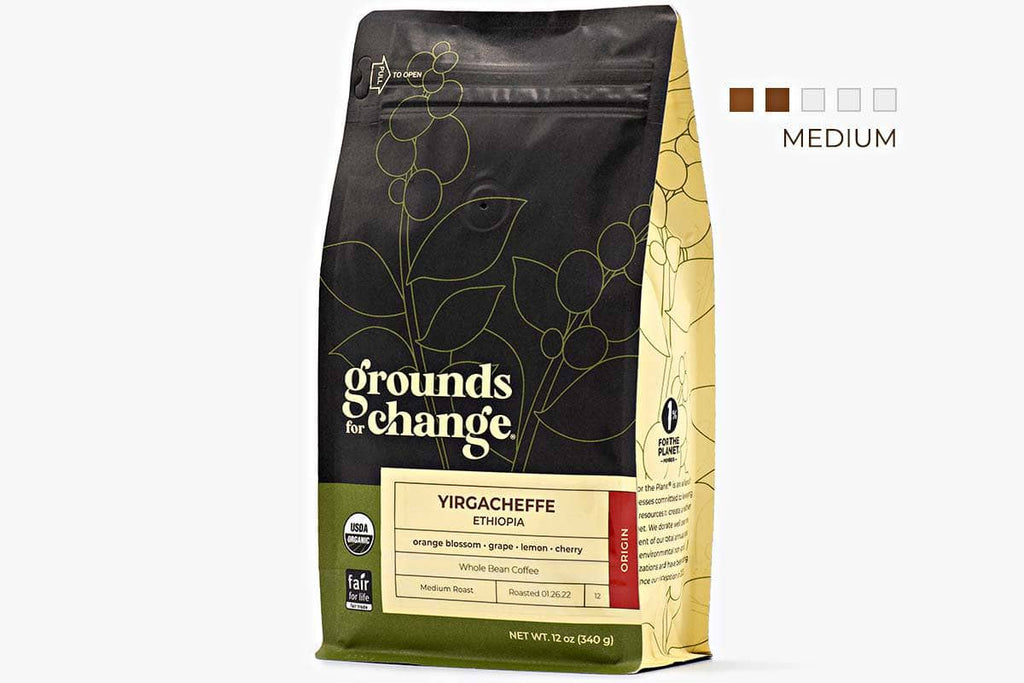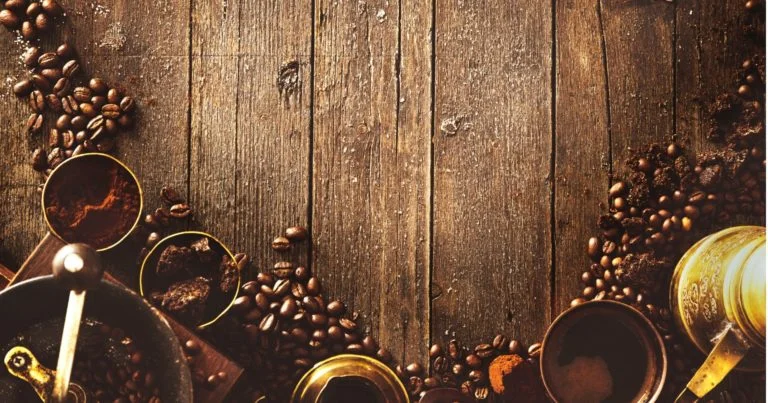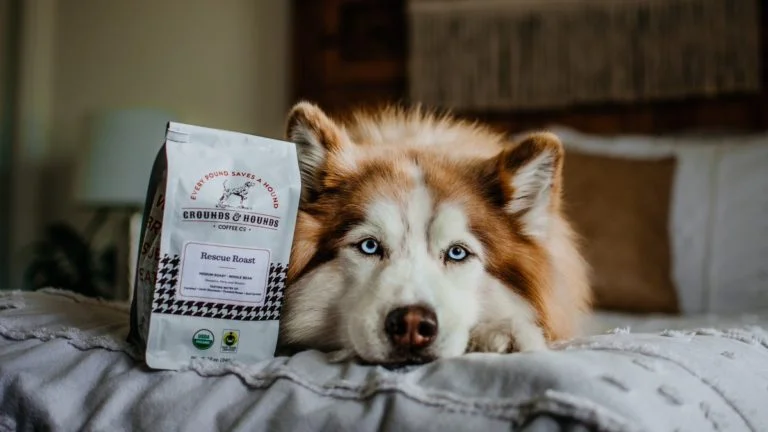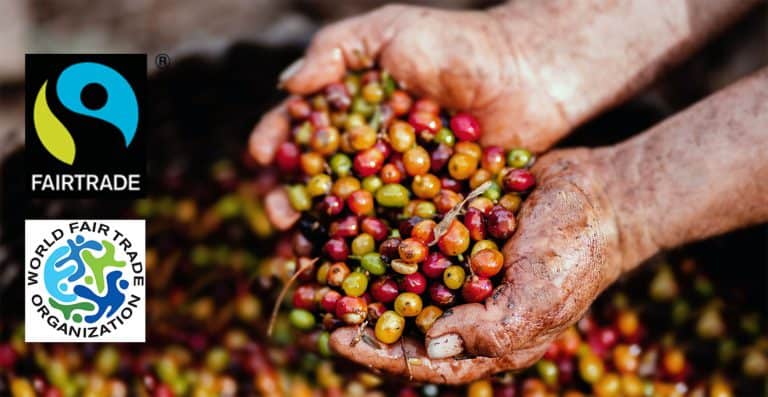8 Best Sustainable Coffee Brands You Can Trust
Have you ever wondered what will happen when the coffee supply as we know it ends? As scientists predict, 60% of the land used for cultivating coffee plants in coffee regions worldwide will become unsuitable for farming by 2050. As a coffee lover, what action should we take to prevent this and is it possible to have an impact? We’ve handpicked what we think are the best sustainable coffee brands on the market at this time.
If you’re in the market for new coffee or interested using your impact dollars with an organization you believe in, check out our list of the greenest coffee brands.
Coffee and Sustainability
Beneath the flourishing coffee economy lies a ticking time bomb: climate change. According to a 2016 study, climate change is a growing threat to Central America’s most small coffee farms, aside from the continuous coffee price fluctuations.
Yet, Central America coffee farmers remain resilient to the 2-2.5 degree Celsius higher temperature, 5 to 10% lower chances of rainfall, increased pest and disease prevalence, more extreme weather phenomena, and 40% or more production decrease areas suitable for coffee cultivation.
Agroforestry and shade trees are some of the countermeasures that most smallholder coffee producers in Central America utilize. Such measures provide between 30 to 45% shade cover while maintaining a ground cover with leaf litter seems useful.
However, it’s not only Central America who will be affected by climate change. Inconsistent yields of coffee beans are experienced in Colombia due to rising temperatures and erratic rainfalls. Vietnam might experience long drought seasons by 2050 in the Central Highlands, where most Robusta beans are grown.
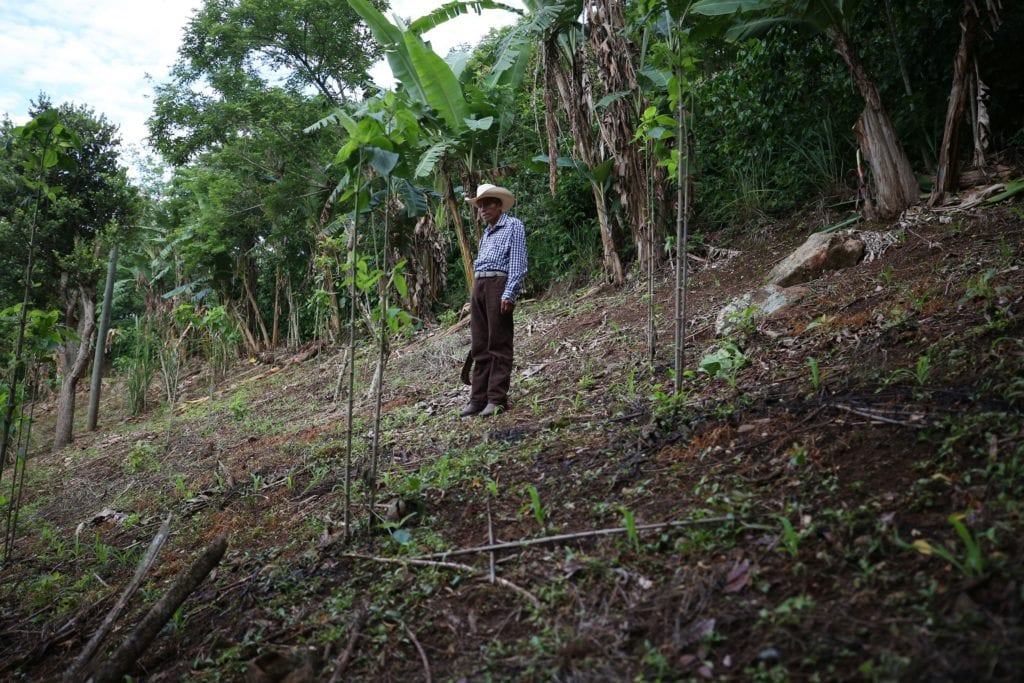
A rise in the number of Honduran small coffee farmers abandoning their coffee farms affected by the climate crisis in exchange for a good life as immigrants is also observed. With climate change, small and big coffee producers will be affected. So what beneficial effects can sustainability in coffee can give if we redirect our support to it?
Although there’s no big coffee company that can tackle this significant issue alone, the existence of the World Coffee Research is beneficial in developing strategies to lessen the impact of climate change. Some of the strategies might be more adaptive than preventive, given that temperatures are bound to rise continuously. Such strategies undertaken are:
- Creation of a gene bank to preserve Arabica coffee beans’ genetic diversity
- Designing a variety catalog tells about the coffee bean’s yield, adaptability to thrive in certain altitudes, and the bean’s pest prevalence.
- Evaluation of the new coffee varieties to ensure palatability through “sensory lexicon.”
Dr. Sarada Krishnan’s talk at the Re: co Symposium Seattle 2017
However, World Coffee Research also acknowledges that significant gaps in knowledge on helping the best small coffee producers adapt to extreme weather patterns are among the organization’s challenges. To which a member of the board of World Coffee Research, Doug Welsh, affirms the shortcomings while giving enlightenment why we must act no
“No one, of course, would want to see any coffee species go extinct, but we have to prepare for the distinct possibility that that could happen,” says Mr. Welsh about how threatening climate change is to the world’s coffee supply.
Sustainability Things to Consider when Buying Coffee
Even if you’re a casual coffee drinker, your purchase of a sustainable brand of coffee can make a difference. Still, there are things to consider when you decide to buy sustainable coffee brands. These are:
Is your coffee FairTrade?
A Fair Trade coffee is a coffee brand certified through the Fairtrade International system. These coffee brands ethically source their raw products from farmers and hire workers for a fair wage. It is an international label that indicates high quality. Likewise, it symbolizes protection for growers and roasters against exploitation.
Read our full overview of FairTrade coffee to learn more.
Is it Organic?
A 2014 paper published online by Cambridge University Press highlights that organic produce is better than cultivated using conventional methods. The document indicated that organic foods have “higher antioxidant and lower cadmium concentrations.” Likewise, organic crops have “the lower incidence of pesticide residues.”
Organic coffee offers a bunch of health benefits. Yet, the benefits are often stripped off by the use of agrochemicals in cultivating the coffee plants. Aside from its effect on the plant, pesticides can also harm humans with manifestations of skin rashes, nausea, headache, lethargy, vomiting, and other allergic reactions when in contact.
So if you were to choose between organic coffees and non-organic coffee, organic coffee is much recommended for its high content of antioxidants, vitamins, and minerals. LIkewise, organic coffee boosts the immune system and serves as a protection from diseases.
Best of all, it safeguards the environment and the farmers with sustainable farming practices in cultivating organic coffees. In case you are looking for organic coffees, check brands of coffee if they have the USDA Organic seal.
Is it Bird Friendly?
Coffees with a Birdfriendly seal are coffees sourced from farms that include a combination of foliage cover, tree height, and biodiversity in their farming practices to protect wildlife and the habitat for birds. Instead of clearing the forest for coffee cultivation, the coffee plants are grown under a canopy of trees.
Likewise, these coffee farms actively participated in the Bird-Friendly Program that sought to protect the bird’s habitat from the threat of deforestation. To support coffee farms who are protecting biodiversity, look for coffee brands with Bird-Friendly seals.
Are there Certifications?
Other green certifications worth considering to support the movement to protect our environment and wildlife are the following:
B-Corporation
B-Corporations are those who serve the community beyond the expectations. It’s a certification program that evaluates companies through their social and environmental performance. The B Impact assesses how the company’s operations and business model affects the employees, the community, the environment, and the stakeholders. It’s an end-to-end performance verification where every business process is observed, assessed, and evaluated.
1% for the Planet
The 1% for the Planet is an initiative started by two businessmen who shared love for the outdoors. Upon realizing the responsibility to protect the planet, these two businessmen began to give 1% of their sales back to the environment regardless of profitability in their end.
This environmental initiative aims to fund diverse ecological organizations worldwide to help solve the world’s ecological problems.
Carbon Neutral
Carbon Neutral is the most recent certification in promoting environmental awareness to consumers. Among other highly consumed crops worldwide, coffee is one of the crops that has an enormous negative impact on the environment and wildlife.
To cultivate coffee, forests have to be cleared to make way for coffee plantations, which leads to water contamination from pesticides and herbicides. The beans are then imported to developed countries responsible for the roasting of the coffee beans.
Lastly, these beans are shipped to customers for consumption. From this process, imagine how much energy was used and how much carbon dioxide is emitted for the simple joys of having a delicious cup of coffee. The guilt feeling is there, and this is what the claims of carbon neutrality are for, which aims to eliminate the guilt and make coffee an appealing product to consumers.
How does Carbon Neutral certify businesses? Companies are expected to have business practices that do not add greenhouse gases to our atmosphere. They have to meet the environmental and labor standards that relate to reducing their carbon footprint.
Rainforest Alliance
The Rainforest Alliance intent to protect the environment and labor rights of the workers. It is a non-profit, tax-exempt institution based in New York. This environment organization aims to conserve biodiversity by promoting sustainable agriculture, forestry, tourism, and other businesses.
It only certifies products and services, including coffee, if a company complies with the agency’s specific standards.
Does it support direct trade, single-origin, and single producer?
Sustainability does not only revolves around the environment. Farmers and roasters also play an essential role in protecting the planet. Eco friendly becomes more tangible when it is attached to certifications that support sustainability in coffee.
Direct Trade
Direct trade is different from Fair Trade. While Fair Trade provides a safety blanket for the coffee producers in case of the market price dive to its lowest, Direct Trade is more focused on the quality of coffee producers can provide regardless of the coffee price.
Coffee roasters travel to coffee regions to visit their partner coffee farm for direct bean purchases. Some coffee company partners with coffee farms and extend financial and technical support by providing equipment and enough funding to ensure quality coffee.
So if you found a coffee brand labeled with “Direct Trade,” it means that the coffee company is very meticulous with the quality of their coffee beans they offer to consumers.
We’ve dedicated an entire article to Direct Trade that covers everything you need to know.
Single Origin
Ever wondered why single-origin coffee is expensive? That’s because the coffee beans have a unique flavor profile that is only available in certain coffee regions. Single-origin coffees are beans given the utmost care and special treatment (think about the kind of soil used in growing these crops, the growing condition, and the farming practices used to yield a high-quality bean).
Single Producer
A single producer is a coffee producer that directly trades their single-origin coffee to buyers. These are one farm or an estate cultivating premium grade coffee to meet single-origin coffee buyers’ demands.
Single producer of premium quality coffee removes the anonymity on who produces these single-origin coffee beans. So when you buy a single-produced coffee, you are already aware of where the coffee beans were rightfully sourced, assuring you that you got the best beans.
Is it Shade-Grown?
Coffee cultivated under the partial forest canopy is considered a sustainable practice in preserving the environment and biodiversity, mostly forest that is slowly diminishing because of deforestation. Many roasters and coffee sellers are supporting coffee producers who practice this traditional but sustainable farming practices.
Shade-grown coffee is often sourced from coffee farms situated in southern Mexico, Peru, El Salvador, Ethiopia, Nicaragua, Panama, Sumatra, Guatemala, and New Guinea.
Our Favorite Sustainable Coffee Brands
There are many sustainable coffee brands that Big Cup of Coffee can recommend. Still, these eight sustainable coffee brands below raised the bars to support and protect the environment and wildlife while roasting the best tasting coffee.
Larry’s Coffee
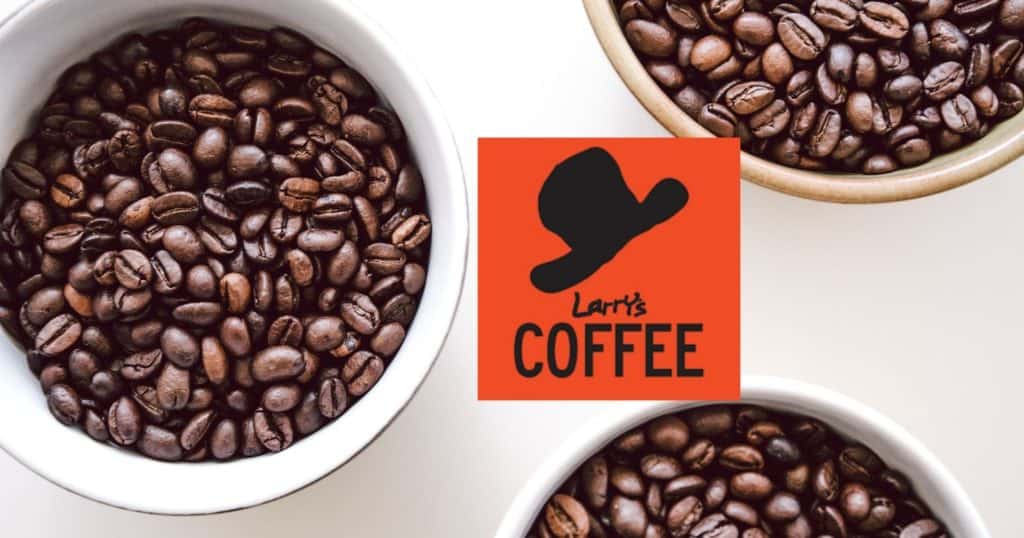
Larry’s Coffee is a sustainable-focused coffee roaster that builds long-term relationships with farmers. It’s one of the B Corporations in our list. They source their beans through cooperatives that import Fair Trade coffee beans directly from the growers.
- Location: Raleigh, North Carolina
- Organic: Yes
- Fair Trade: Yes
- Bird-Friendly: No
- Rainforest Alliance: Yes
- Carbon Neutral: Yes
- Certifications: Fair Trade, Organic, Shade-Grown, B-Corporation
- Direct Trade, Single Origin, or Single Producer: Direct Trade, Single-Origin
- Our Overall Rating: 4.4 out of 5
- Our Comprehensive Review: https://bigcupofcoffee.com/larrys-coffee/
- Our Favorite Coffee: El Salvador Dali Blend
Read the full review of Larry’s Coffee here see what this B-corp coffee company has in store for you!
The Cowboy Blend is a popular coffee mix combining Indonesian and American beans, featuring a balance of earthy Sumatran flavors and the buttery smoothness of Nicaraguan coffee. It is roasted to a level that emphasizes a full-bodied sweetness without overpowering the complex blend of spicy, roasty, and smoky flavors.
Nossa Familia
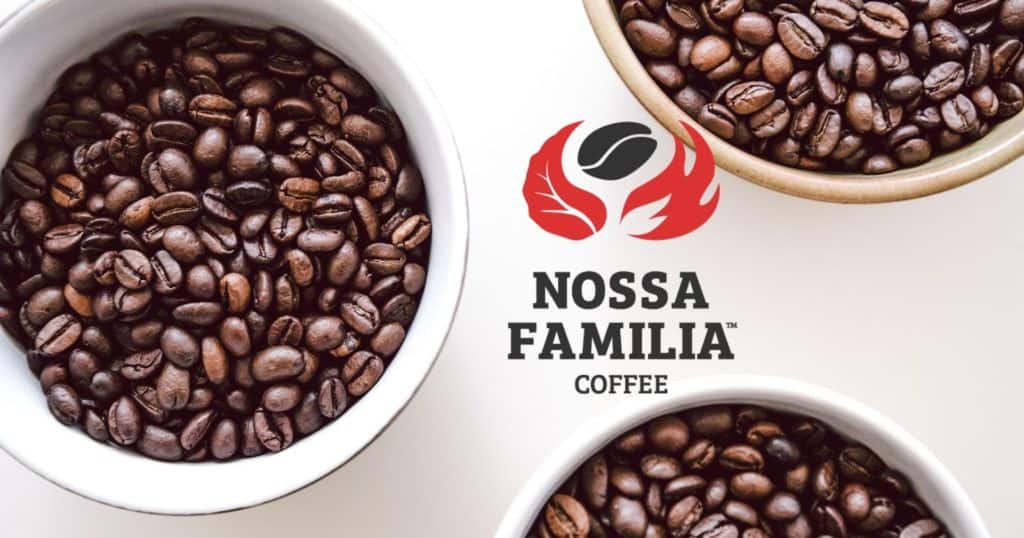
Nossa Familia Coffee is a B Corp coffee roaster in Portland that focuses on building positive and lasting relationships and environmental sustainability. They treat coffee growers as part of their family and extend support to people and organizations they’d think would make a difference.
- Location: Portland, Oregon
- Organic: Yes
- Fair Trade: Yes
- Bird-Friendly: No
- Rainforest Alliance: Yes
- Carbon Neutral: No
- Certifications: Organic, Fair Trade, Rainforest Alliance
- Direct Trade, Single Origin, or Single Producer: Direct Trade, Single Origin
- Our Overall Rating: 4.4 out of 5
- Our Comprehensive Review: https://bigcupofcoffee.com/nossa-familia-coffee/
- Our Favorite Coffee: Full Cycle Medium Roast
Find out what makes Nossa Familia different from other sustainable coffees with its approach to social and environmental issues while celebrating family heritage.
Teodoro's Italian Roast is a medium-dark blend with a rich flavor profile, including cocoa, roasted nuts, caramel, woody spice, and almond hints.
It's designed for coffee enthusiasts, offering a full-bodied and flavorful experience, suitable for various brewing methods like drip or press pot. The coffee can be enjoyed black or with cream and sugar for a creamier taste.
Portland Roasting Company
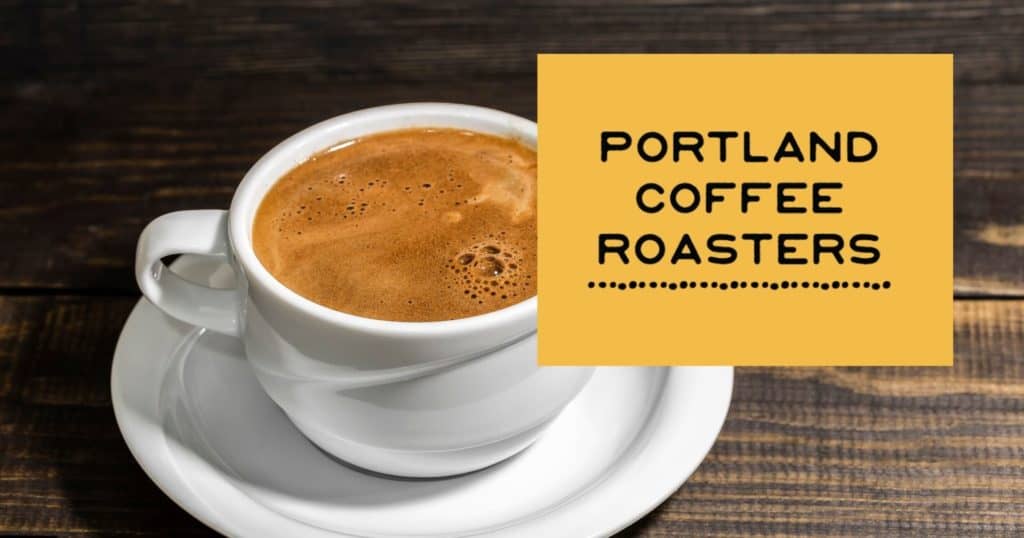
Portland Coffee Roasters sources its beans directly from farmers. Not only do these coffee roasters support FairTrade, but they also embrace practices that build sustainable relationships with the communities: renewable energy practices, fair trade and organic, coffee production standards that reduce their impact on the environment.
- Location: Portland, Oregon
- Organic: Yes
- Fair Trade: Yes
- Bird-Friendly: No
- Rainforest Alliance: Yes
- Carbon Neutral: No
- Certifications: Organic, Fair Trade, Rainforest Alliance
- Direct Trade, Single Origin, or Single Producer: Direct Trade, Single-Origin
- Our Overall Rating: 4.4 out of 5
- Our Comprehensive Review: https://bigcupofcoffee.com/portland-roasting-company-review/
- Our Favorite Coffee: Goose Hollow House Blend
Find out how sustainability plays a vital role in Portland Roasting Company from our full review.
The Organic Portland House coffee is a balanced blend featuring mild acidity, medium body, and walnut flavor notes. It is roasted to the lighter side of medium, resembling the roast profile of the conventional Portland House blend. This organic coffee primarily uses beans from Central and South America to maintain its consistent taste and organic status.
Tiny Footprint Coffee
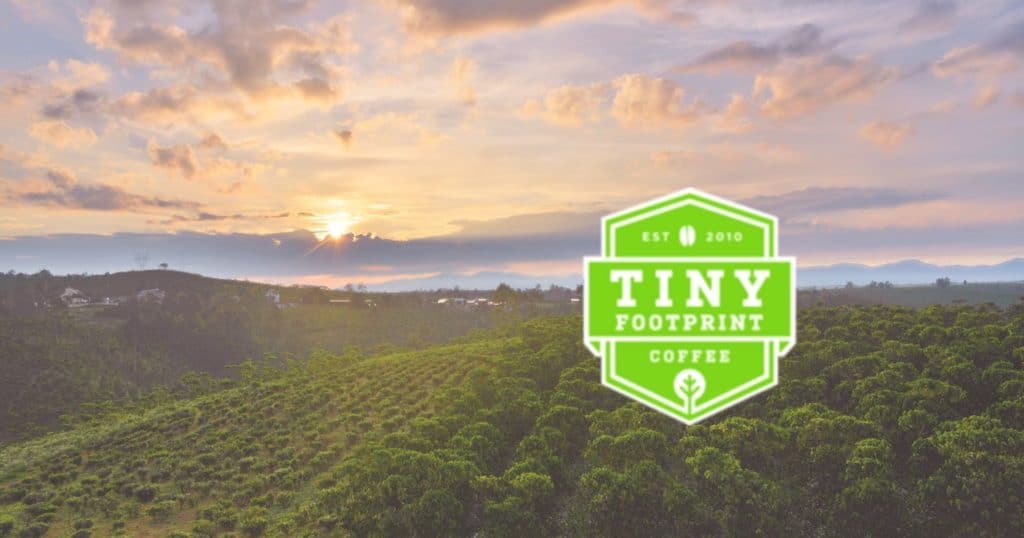
Tiny Footprint Coffee is a small coffee roaster that supports environmental sustainability. Whenever you buy a coffee bag from their online store, this coffee company plants trees from buying organic, shade-grown coffee beans of coffee farmers from top coffee regions. They also pay the farmers with a competitive market value of coffee beans per pound to earn a decent living.
- Location: Brooklyn Center, Minnesota
- Organic: Yes
- Fair Trade: Yes
- Bird-Friendly: Yes
- Rainforest Alliance: Yes
- Carbon Neutral: Yes
- Certifications: Organic, Fair Trade, Bird-Friendly, Rainforest Alliance
- Direct Trade, Single Origin, or Single Producer: Direct Trade, Single Origin
- Our Overall Rating: 4.7 out of 5
- Our Comprehensive Review: https://bigcupofcoffee.com/tiny-footprint-coffee/
- Our Favorite Coffee: Fair Trade Organic Peru
Learn more about what acts of sustainability Tiny Footprint Coffee supports in our full review.
Tiny Footprint Coffee offers a dark roast with chocolate, apricot, fig, and spice notes, and is the world's first carbon-negative coffee. The company supports reforestation in Ecuador's Mindo Cloud Forest, offsetting more CO2 than it emits in its production process. In addition to its environmental efforts, the coffee is sustainably sourced, often organic or fair-trade certified, and is crafted in a carbon-negative roastery.
Pachamama Coffee
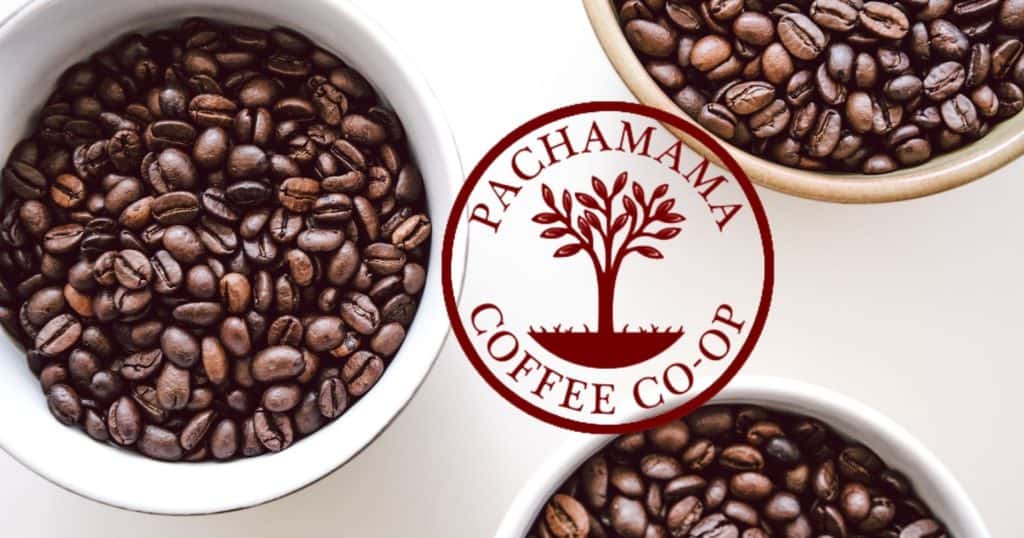
Pachamama Coffee is a coffee cooperative that buys coffee directly from the cooperative members at a fair and competitive price. The unions and Pachamama members determine the coffee purchases’ value to ensure that growers are paid right.
The farmers export coffee beans while Pachamama imports it to the US. The imported beans are roasted and shipped for wholesale and retail consumption. And the entire profits of the coffee are brought back to farmers through retained earnings or dividends.
- Location: Sacramento, California
- Organic: Yes
- Fair Trade: Yes
- Organic: Yes
- Bird-Friendly: Yes
- Rainforest Alliance: Yes
- Carbon Neutral: No
- Certifications: Fairtrade, Organic, Rainforest Alliance
- Direct Trade, Single Origin, or Single Producer: Direct Trade, Single Producer
- Our Overall Rating: 5.0 out of 5.0
- Our Comprehensive Review: https://bigcupofcoffee.com/pachamama-coffee/
- Our Favorite Coffee: Single Origin Guatemala
Read our full Pachamama Coffee review to discover how coffee cooperatives can help in promoting sustainable living.
The Pachamama coffee, originating from Santa Teresa, Cusco in Peru, is a medium roast, single-origin product, grown by 8,500 farm owners associated with the COCLA cooperative. This coffee is notable for its cherry, cream, and chocolate flavors. It is also shade-grown and certified organic.
Volcanica
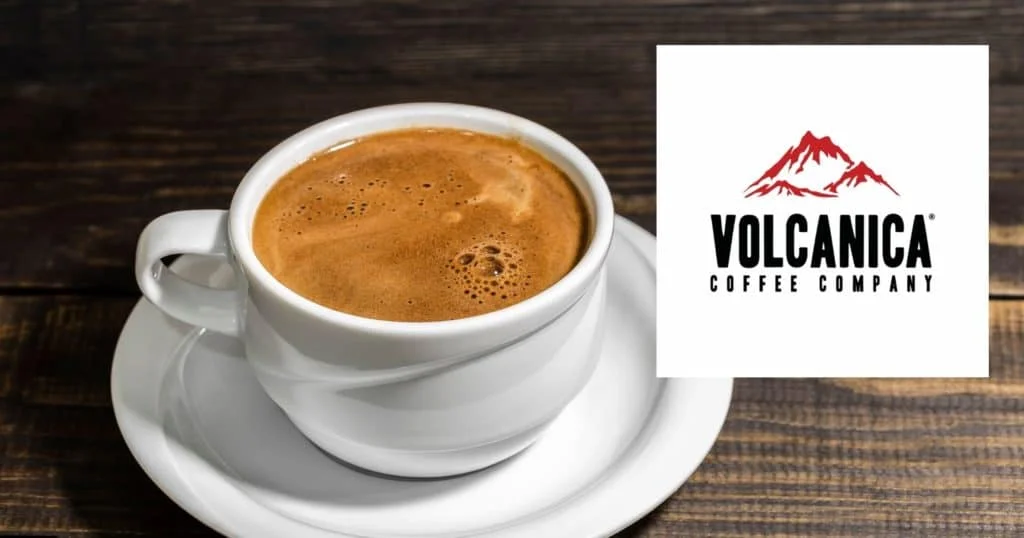
Volcanica Coffee is known for sourcing coffee beans cultivated on farms that practice sustainable farming. Likewise, they interact with the community and the environment based on their core principles and values.
- Location: Atlanta, Georgia
- Organic: Yes
- Fair Trade: Yes
- Organic: Yes
- Bird-Friendly: No
- Rainforest Alliance: Yes
- Carbon Neutral: No
- Certifications: Fair Trade, Rainforest Alliance, Organic, Shade-Grown
- Direct Trade, Single Origin, or Single Producer: Direct Trade, Single Origin, Single Producer
- Our Overall Rating: 4.6 out of 5
- Our Comprehensive Review: https://bigcupofcoffee.com/volcanica-coffee-review-2020/
- Our Favorite Coffee: Organic Ethiopian Yirgacheffe
See how Volcanica shows its commitment to the environment by reading our full Volcanica Coffee review here.
The Ethiopia Natural Coffee is a micro-lot, naturally processed coffee from a 5.25-hectare farm in West Arsi, Ethiopia. Grown in nutrient-rich red volcanic soil, this coffee offers a distinct flavor profile with notes of blueberry, jasmine, and sugarcane.
It is a light roast, single-origin coffee, dried traditionally on raised African beds and cultivated at an altitude of 6,825 feet. The farm is small, so this coffee runs out quick.
Counter Culture Coffee
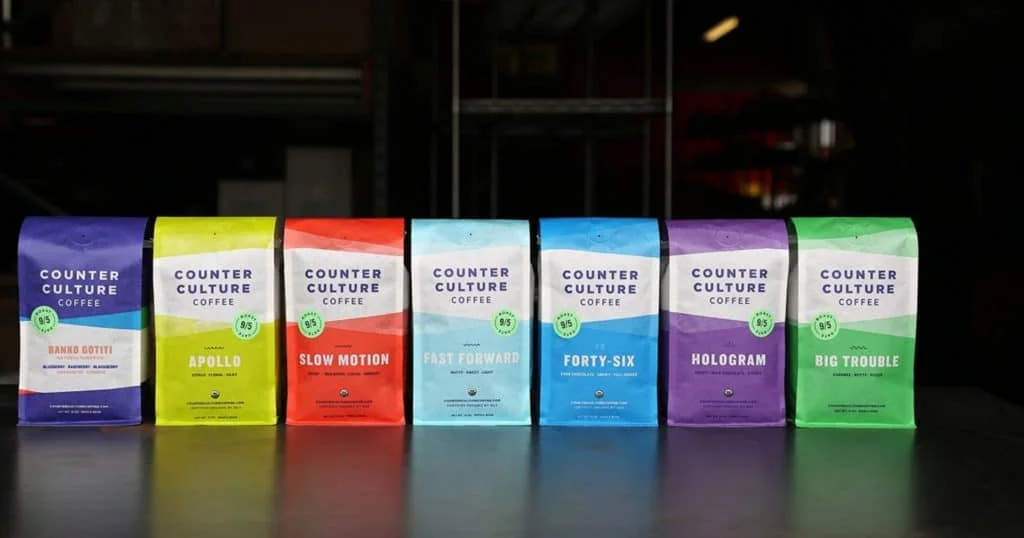
Counter Culture Coffee is the pioneer of high quality, sustainable coffee beans. It was founded in 1995 to pursue coffee perfection through commitment to environmental, social, and fiscal sustainability. This coffee roaster forms relationships with coffee growers and agencies to build trust, improve quality, and promote transparency.
- Location: Durham, North Carolina
- Organic: Yes
- Fair Trade: Yes
- Organic: Yes
- Bird-Friendly: Yes
- Rainforest Alliance: Yes
- Carbon Neutral: No
- Certifications: Fairtrade, Organic, Kosher
- Direct Trade, Single Origin, or Single Producer: Direct Trade, Single Origin
- Our Overall Rating: Coming Soon
- Our Favorite Coffee: Big Trouble Blend
Learn more about upscale sustainability in our Counter Culture Coffee full review.
Apollo is a coffee blend that emphasizes the unique floral and citrus flavors of Ethiopian coffee, celebrating Ethiopia's historical role in coffee culture. Apollo highlights seasonal variations rather than maintaining a consistent flavor profile, using only certified organic, washed Ethiopian coffees.
Grounds for Change Coffee
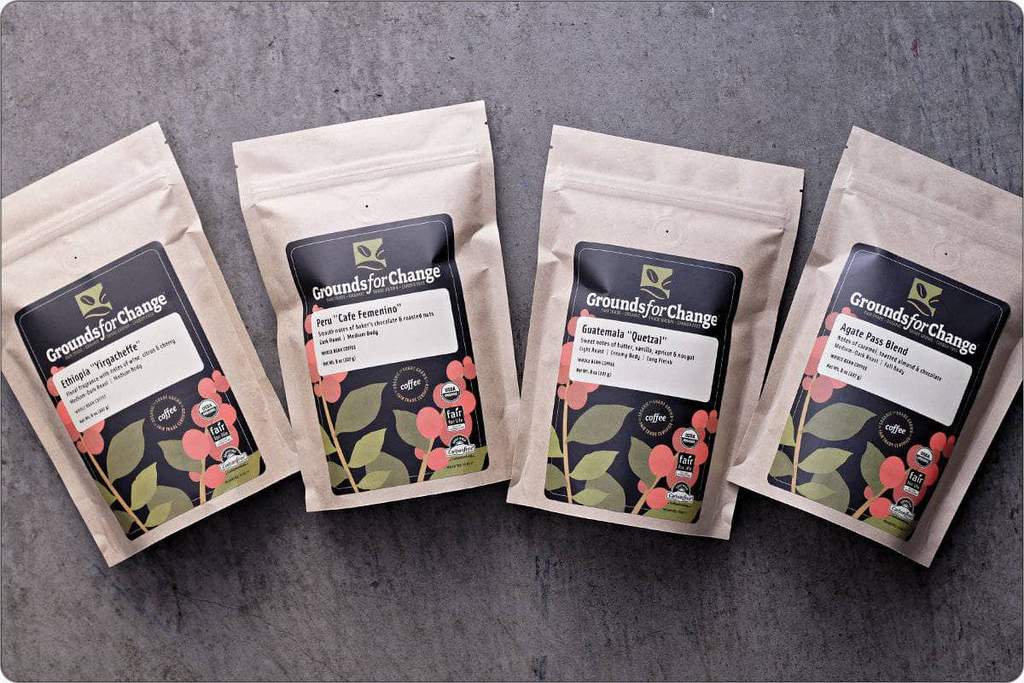
Grounds for Change Coffee is a family-owned coffee company. All of the blends are Organic, Carbon-Free, and Fairtrade certified. Much of the coffee they sell is cultivated in shade-grown conditions to ensure high-quality coffee while supporting a healthy living condition for migratory birds.
- Location: Kitsap Peninsula, Seattle
- Organic: Yes
- Fair Trade: Yes
- Carbon-Free: Yes
- Bird-Friendly: Yes
- Rainforest Alliance: Yes
- Carbon Neutral: Yes
- Certifications: B-Corp, 1% for the Planet, Fairtrade, Organic
- Direct Trade, Single Origin, or Single Producer: Direct Trade, Single Origin
- Our Overall Rating: Coming Soon
- Our Favorite Coffee: Agate Pass Med-Dark Blend
Learn more about social purpose meeting sustainability in our Grounds for Change full review.
Yirgacheffe coffee, known for its fragrant, floral aroma, is sourced from fair trade, organic family farms in Ethiopia and is part of the Yirgacheffe Coffee Farmers Cooperative Union. The coffee, which is carbon offset and certified by Fair for Life and the Washington State Department of Agriculture, is roasted to order and packaged to preserve freshness.
More Coffee Sustainability Tips
Choosing sustainable coffee brands is one step towards an ethical cup of coffee every day. Here are more tips you can do to further make your brews better for the planet and everyone involved in its production:
- Use reusable mugs or tumblers. When going out, instead of buying coffee in single-use cups, have your own tumbler handy to reduce your coffee’s carbon footprint.
- Stop using single-use coffee pods and capsules. If you do have a coffee pod machine, a reusable pod like the Keurig K-Cup is worth considering.
- Repurpose your coffee grounds. Instead of throwing your used coffee grounds into the bin, you can reuse them as compost, fertilizer, insect repellant, deodorizer, and more. Read more recycling ideas here.
- Use manual brewing methods more. Save energy by using manual methods such as pour over, French press, or AeroPress.
Our Takeaways for the Best Sustainable Coffee Brands
The preservation of our environment relies heavily upon our buying decisions and our mode of consumption. With environmental reports published every day by renowned scientists and environmentalists about our planet’s condition, such issues raised should not be taken lightly.
Many businesses are starting to take their first steps toward preserving the environment by complying with different environmental standards. Still, it won’t have any effect if consumers don’t take into account our planet’s situation and support sustainable initiatives. Choosing which coffee to buy is one way you can make a small difference – it all adds up.


